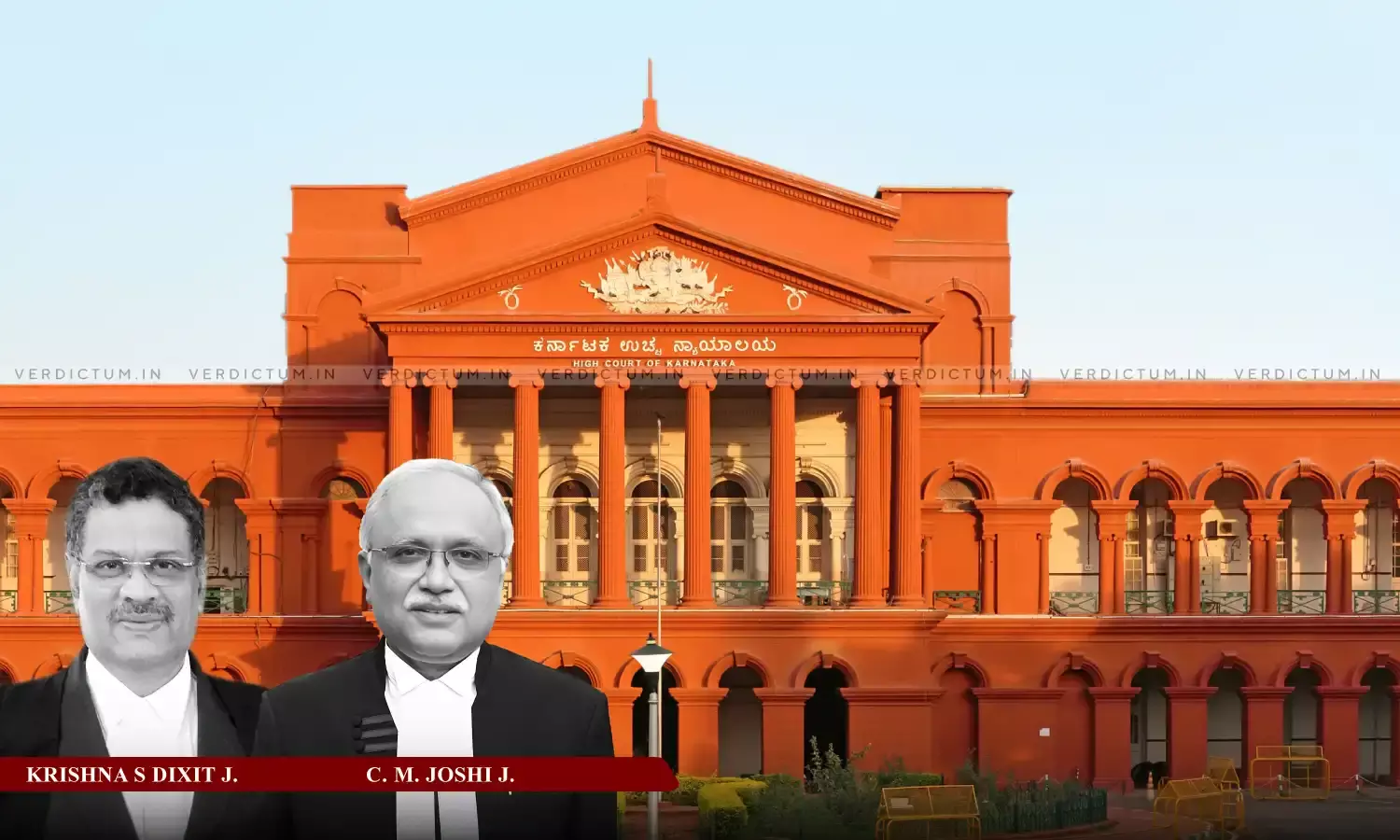"How Blindness Would Come In The Way?" : Karnataka HC Upholds Order Directing Consideration Of Blind Candidate’s Appointment As Teacher
The Karnataka High Court upheld the Karnataka State Administration Tribunal’s Order directing consideration of blind candidate’s appointment to the post of Primary Teacher.
The Court observed that the actions of the State and its instrumentalities falling within the umbrella of Article 12 have to be consistent with such policies statutorily promulgated.
The State and its Officers had approached the Writ Court for assailing the State Administration Tribunal’s order whereby Application filed by the Respondent (a member of Scheduled caste and absolutely blind) was accepted and the Department was ordered to consider the applicant for appointment to the post ‘Graduate Primary Teacher’ (Social Studies, teaching Kannada) along with other low vision candidates.
The Division Bench comprising Justice Krishna S Dixit and Justice C M Joshi asserted, “How blindness would come in the way of discharging duties of a teacher of the kind is difficult to appreciate. History is replete with instances of blind people who have achieved great things in life: Homer (900 B.C.) of great epics (Iliad and Odyssey), John Milton (1608-1674) [Paradise Lost], Louis Braille (1809-1852) [Braille Script], Helen Keller (1880-1968) [women suffrage] & Srikanth Bolla (CEO of Bollant Industries worth £48 million] are only a few to name.”
HCGP Saritha Kulkarni represented the Petitioners.
The core issue in this case pertained to favorable reservation for the class of disabled candidates (low vision).
It was the State’s case that the reservation for ‘low vision candidates’ constitutes one class and reservation for the ‘blind candidates’ constitutes another. This subtle difference between the two having been lost sight off, the Tribunal’s order has an error apparent on its face warranting interference of this Court.
The Bench referred to the Government Notification dated July 26, 2011 classifying persons of various disabilities and positions wherein they can be accommodated in the public employment. The very first category belongs to candidates with blindness and the second is earmarked for the candidates with low vision.
Considering the fact that the Notification only spoke of Low Vision candidates, the Bench observed, “Therefore, the Tribunal is more than justified in banking upon the Central piece of delegated legislation namely, the statutory Notification dated 05.03.2007 which should override the comparatively lesser status delegated legislation namely 2011 Notification of the State.”
The Bench discarded the HGCP’s contention that the kind of work which a ‘Graduate Primary Teacher’ (Social Studies, teaching Kannada) does in ordinary course cannot be discharged by persons with absolute blindness, though their educational qualifications do satisfy the Rule requirement.
The Bench also made it clear that for the purpose of preferential treatment, as between the candidates of ‘low vision’ and the candidates of ‘absolute blindness’, the priority avails to the later since they are more disadvantageously placed qua the former subject to the condition that the blindness does not come in the way of discharging duties attached to the post. “The actions of the State and its instrumentalities falling within the umbrella of Article 12 have to be consistent with such policies statutorily promulgated”, it added.
The Tribunal has not excluded the candidates of low vision from the fray; it has only widened the fray by permitting blind candidates in it. Courts & Tribunals have to mould the relief to suit the requirement of law, reason & justice, the Bench held while dismissing the petition.
Cause Title: State of Karnataka v. Ms. Latha H N [Neutral Citation: 2024:KHC:45381-DB]
Appearance:
Petitioners: HCGP Saritha Kulkarni




